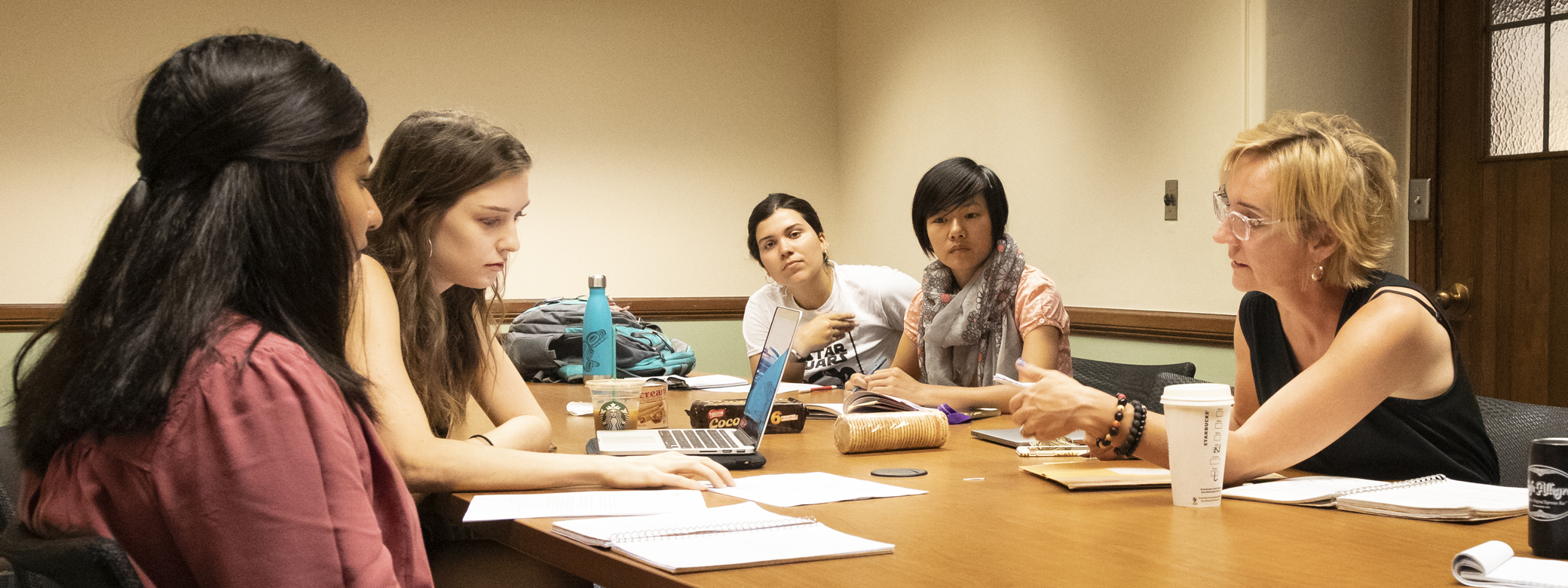Explore the College of Arts & Sciences centers, programs, and initiatives that further the UW’s commitment to equity, justice, and inclusion (EJI) on and off-campus.
Centers
The College houses numerous centers committed to EJI work that attracts students from a variety of disciplines.
- Women’s Center
The mission of the Women’s Center at the UW is to create a more inclusive and compassionate society by promoting gender equity and social justice through educational programs and services that allow all participants to succeed in life. -
Center for Communication, Equity and Difference
The CCDE strives to be a space where the UW community of students, faculty, staff and alumni gather to promote greater equity. Through research collaborations, networking opportunities, action-oriented classes, mentorship programs, and community engagement, the CCDE engages in dialogue to think critically about race and its intersections, to interrupt privilege, and ultimately to change the structures of power around us. -
The Center for Evaluation & Research for STEM Equity (CERSE)
Housed at the University of Washington Department of Sociology, CERSE focuses on conducting high-quality program evaluation and research to improve equity and broaden representation in STEM fields, with a focus on higher education. CERSE helps meet the challenges of the emerging workforce: recruitment, retention, and advancement of women and underrepresented minorities. -
Washington Institute for the Study of Inequality and Race (WISIR)
The Washington Institute for the Study of Inequality and Race (WISIR) is an interdisciplinary research center dedicated to bringing the tools of critical theory and contemporary social science to the analysis of social, economic, and political inequality along lines of race, ethnicity, gender, sexuality, and class. The center seeks to enhance public understanding of these issues, as well as contribute to political solutions. -
Harry Bridges Center for Labor Studies
The Harry Bridges Center for Labor Studies supports students and faculty at the University of Washington in the study of labor in all of its facets. Through education and research, the Center's missionmission is to develop labor studies — broadly conceived to include working people everywhere — as a central concern in higher education. The Center cultivates connections with labor communities locally and around the world, and informs policymakers about issues confronting workers. -
Center for Human Rights
The University of Washington Center for Human Rights is committed to interdisciplinary excellence in the education of undergraduate and graduate students in the field of human rights; promoting human rights as a core area of faculty and graduate research; and engaging productively with local, regional, national, and international organizations and policymakers to advance respect for human rights.
Curricular Opportunities
The world is complex. A mind-boggling mix of cultures, beliefs, histories and ecosystems. Because we’re all connected more than ever, finding common ground while respecting differences is an increasingly valued skill. It is also the hallmark of a UW Arts & Sciences education. Explore our divisions.
- Diversity Requirement
The University of Washington's diversity requirement asks all undergraduates take a minimum of 3 credits, approved by the appropriate school or college, that focus on the sociocultural, political, and/or economic diversity of the human experience at local, regional, or global levels.
- Diversity Minor
The UW Diversity minor is designed to develop students’ understanding of the complexities of socially constructed identities — race, class, gender, disability, ethnicity, nationality, sexuality, religion and age—and the ways in which they intersect with each other.
- Disability Studies Minor
Students in the undergraduate Disability Studies minor and the Individualized Studies major in Disability Studies have the opportunity to study disability rights and culture through courses in the humanities, arts, and social sciences.
- Humanities First
This program aims to help students think broadly about human life - from science, to art, to literature, to culture, and beyond - and to explore the questions that matter. Students take courses taught by faculty from across the Humanities division and take field trips to learn from the world around us.
Collaborations
- Research Exchange
For the first time, nine of the nation's most prominent universities are engaging in joint mentorship, scientific collaboration, career development and guidance of advanced PhD students and postdoctoral fellows. The goal of the Research Exchange is to leverage the influence of premier institutions to diversify the mathematical, physical sciences and engineering — increasing the advancement of diverse Ph.D. students and postdoctoral fellows from participating top tier institutions into the most competitive research and teaching careers. Through this program, the alliance will sponsor a student or postdoctoral fellow's visit with a faculty member or research scientist for a short period to learn new techniques, engage in collaborative discussion for innovative problem solving and face-to-face interaction between scientists at any of our participating institutions.
